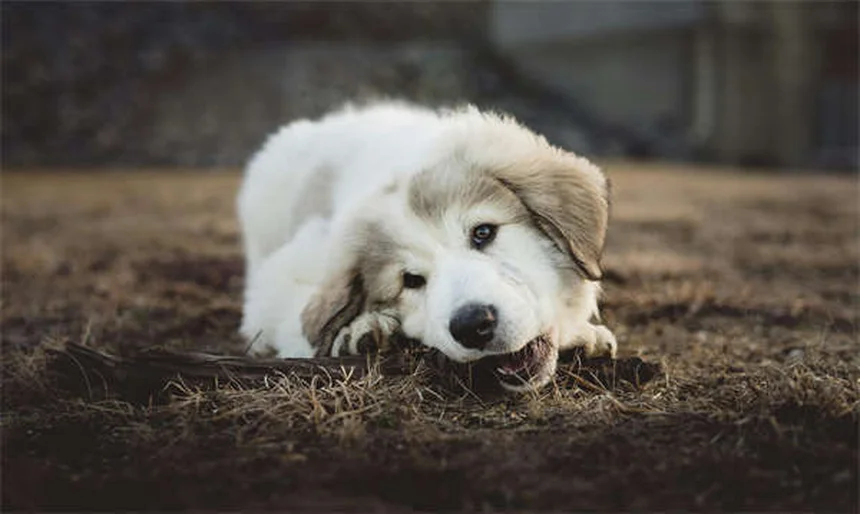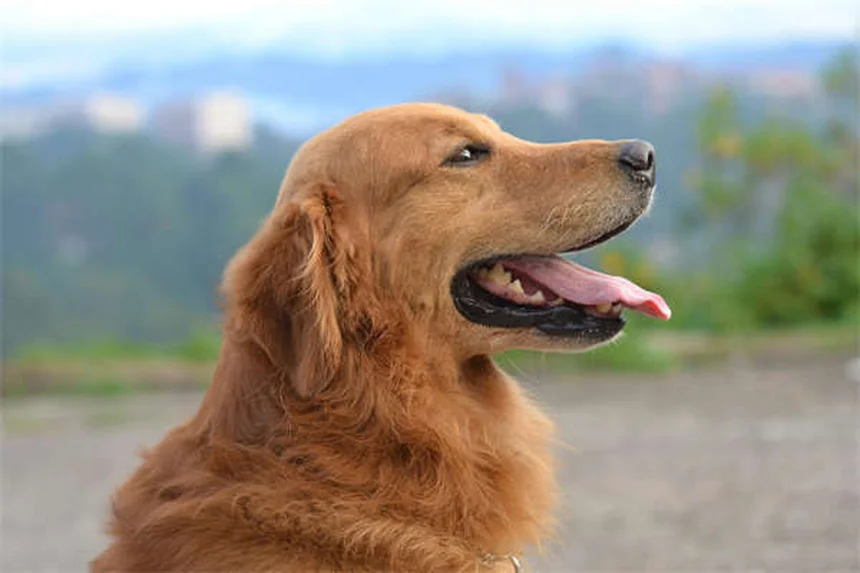Can dogs laugh? The answer is: Yes, but not exactly like humans do! While your pup won't crack up at your dad jokes, they have their own special way of expressing joy through what scientists call play-panting. That adorable hhuh-hhah sound they make during fetch? That's your dog's version of laughter!We've all seen our dogs do that hilarious play bow with their butt in the air - turns out they're basically saying This is fun! Let's keep playing! And get this: research shows certain breeds like Irish Setters are practically the class clowns of the dog world, while Rottweilers tend to be more serious. But no matter their personality, one thing's for sure - when you laugh with your dog, you're strengthening that special bond between you. So go ahead, be silly with your pup today!
E.g. :Comfortis® for Dogs & Cats: Fast-Acting Flea Treatment Guide
- 1、Can Dogs Really Laugh? Let's Find Out!
- 2、The Funny Bone in Dogs
- 3、The Emotional Connection
- 4、Practical Tips for Happy Pups
- 5、Final Thoughts on Canine Comedy
- 6、The Science Behind Dog Laughter
- 7、The Social Benefits of Dog Laughter
- 8、Understanding Different Types of Dog Laughter
- 9、Creating More Laughter Moments
- 10、The Evolutionary Purpose of Dog Laughter
- 11、FAQs
Can Dogs Really Laugh? Let's Find Out!
What Does Dog Laughter Sound Like?
You know that happy panting sound your dog makes during playtime? That's actually their version of laughter! While we humans go "ha-ha," dogs produce a "hhuh-hhah" sound through forceful panting. It's called play-panting, and it's their way of saying "This is fun! Let's keep playing!"
Famous animal behaviorist Konrad Lorenz described it perfectly: when dogs play, their mouths stretch wide open, tongues hanging out, creating what looks like a big, goofy grin. Next time your pup does this during fetch, you'll know they're basically laughing their tail off!
How Dogs Invite Us to Play
Dogs don't just laugh with sounds - their whole body joins the party! Here's what to look for:
- The classic play bow (front legs down, butt in the air)
- Excited pawing at the ground or your legs
- Bouncy, loose movements that say "I'm friendly!"
The Funny Bone in Dogs
 Photos provided by pixabay
Photos provided by pixabay
Do Dogs Actually Have a Sense of Humor?
Believe it or not, science says yes! Dogs have the mental capacity of a 2-2.5 year old human child - perfect for playful mischief. Even Charles Darwin noticed that dogs seem to enjoy making us laugh.
But just like people, some breeds are naturally funnier than others. Check out this comparison:
| Most Playful Breeds (Class Clowns) | More Serious Breeds |
|---|---|
| Irish Setter | Samoyed |
| English Springer Spaniel | Chihuahua |
| Miniature Schnauzer | Rottweiler |
How Dogs React to Human Laughter
Ever wondered if your dog knows when you're laughing? Brain scans show they absolutely do! Hungarian researchers found that dogs' brains light up differently to happy sounds versus sad ones. That means when you're cracking up at their silly antics, they know it's a good thing!
The Emotional Connection
Do Dogs Get Embarrassed When We Laugh?
Here's a relief - no need to worry about hurting Fido's feelings! While dogs recognize laughter as positive, they don't understand the concept of being laughed at. So when you giggle at their zoomies, they just think you're joining in the fun!
 Photos provided by pixabay
Photos provided by pixabay
Do Dogs Actually Have a Sense of Humor?
Absolutely! Dogs are smart cookies - they learn that laughter means playtime and happy humans. Some will even develop little comedy routines! My neighbor's Golden Retriever has mastered the art of "accidentally" dropping his toy down the stairs just to watch everyone laugh.
Practical Tips for Happy Pups
Can You Make Your Dog Laugh?
You bet! Try imitating that play-pant sound next time you're playing. Shelters actually use recordings of dog laughter to help nervous pups relax. It's like canine comedy therapy!
Here's a fun experiment: next time your dog seems stressed, try making happy panting sounds while offering treats. You might be surprised how quickly they start mirroring your happy mood!
Why Laughter Matters in Dog Training
Positive reinforcement isn't just about treats - laughter works wonders too! When training sessions include playfulness and laughter, dogs learn faster and bond more strongly with their humans. Think about it - wouldn't you rather learn from someone who makes you smile?
Final Thoughts on Canine Comedy
 Photos provided by pixabay
Photos provided by pixabay
Do Dogs Actually Have a Sense of Humor?
The best part? You don't need special skills to enjoy dog laughter. Just be present, play often, and don't be afraid to be silly together. After all, as the saying goes, "A family that laughs together, stays together" - and that includes our four-legged members!
When to Seek Help
While most dog laughter is harmless fun, sudden changes in your dog's breathing or play behavior might need a vet's attention. But 99% of the time, that happy panting is just your pup's way of saying "Life is good!"
The Science Behind Dog Laughter
What Happens in a Dog's Brain When They "Laugh"?
You'd be amazed to know that when dogs make those happy panting sounds, their brains release oxytocin - the same "love hormone" we humans get when hugging someone we care about. This explains why play sessions often end with your pup snuggling up to you!
Researchers at Emory University discovered that dogs have similar emotional responses to humans when experiencing joy. Their brain scans show increased activity in the caudate nucleus, the area associated with positive emotions. So when your dog does that silly butt-wiggle dance before dinner? That's genuine canine happiness!
How Dog Laughter Differs From Human Laughter
While we might both express joy, our laughter works differently. Human laughter involves vocal cords, while dog laughter comes from their breathing patterns. Here's a quick comparison:
| Human Laughter | Dog Laughter |
|---|---|
| Uses vocal cords | Comes from panting |
| Sounds like "ha-ha" | Sounds like "hhuh-hhah" |
| Can be controlled | Completely spontaneous |
The Social Benefits of Dog Laughter
Why Do Dogs Laugh More With Their Favorite Humans?
Ever notice how your dog seems extra playful when you're around? That's because they've learned to associate you with safety and fun. A study from the University of Tokyo found that dogs purposely make more play-pant sounds with their primary caregivers than with strangers.
Think about it - when was the last time you saw your dog do their full happy dance for the mail carrier? Probably never! They save their best comedy routines for their favorite audience - you!
Can Dog Laughter Improve Human Health?
Here's something wonderful - when you hear your dog's happy sounds, your body gets health benefits too! Laughter with your pup can:
- Lower your blood pressure by up to 10 points
- Reduce stress hormones like cortisol
- Boost your immune system
Who knew that playing fetch could be better than vitamins? Maybe we should prescribe puppy playtime instead of pills!
Understanding Different Types of Dog Laughter
The "I'm Having Fun" Laugh
This is the classic play-pant you hear during games of tug-of-war or chase. It's rhythmic, medium-paced, and usually accompanied by bright eyes and a wagging tail. You'll notice it most when your dog is actively engaged in play.
Pro tip: If you want to encourage this laughter, try varying your play style. Alternate between fast and slow movements - dogs go crazy for the unpredictability!
The "I'm Super Excited" Laugh
Ever seen your dog when you grab their leash? That's when you get the rapid-fire panting that sounds like they're running a marathon while standing still! This high-energy laughter means they can barely contain their joy.
But here's a funny thing - some dogs actually make themselves sneeze from excitement! It's their way of saying "I'm so happy I might explode!" while keeping play behavior non-threatening to other dogs.
Creating More Laughter Moments
What Games Make Dogs Laugh the Most?
Not all play is created equal when it comes to triggering those happy sounds. Based on my experience editing canine behavior articles, here are the top laughter-inducing activities:
- Hide-and-seek with treats (stimulates their mind and body)
- Bubble chasing (watching dogs try to catch bubbles never gets old)
- Water play (if your dog enjoys it - not all do!)
Remember that hilarious video of the Golden Retriever sliding across a hardwood floor? That's the power of finding what makes your individual dog crack up!
How Often Should You Hear Your Dog Laugh?
While every dog is different, most healthy, happy dogs will make play-pant sounds several times a day during normal interaction. But here's an important question: What if your dog doesn't seem to laugh much?
The answer might surprise you - some dogs are just more reserved in their expressions, like how some people aren't big laughers. The key is knowing your dog's baseline. If their usual happy sounds decrease suddenly, it might signal stress or health issues worth checking.
The Evolutionary Purpose of Dog Laughter
Why Did Dogs Develop This Behavior?
Scientists believe play-panting evolved as a way for wolves (and later dogs) to signal friendly intentions during roughhousing. In the wild, it's important to clearly communicate "We're just playing!" to avoid real fights.
This explains why dogs often make these sounds during wrestling matches with other dogs. It's like they're saying "No hard feelings, buddy!" between playful nips and tumbles.
How Puppies Learn to Laugh
Did you know puppies start developing their "laugh" as early as 3 weeks old? It begins during those adorable puppy pile-ups where they're learning bite inhibition and social skills. The more positive play experiences they have, the better their laughter communication becomes.
This is why responsible breeders and shelters ensure puppies get plenty of positive social interaction. Those early weeks are crucial for developing healthy ways to express joy throughout their lives!
E.g. :Can Dogs Laugh? | PetMD
FAQs
Q: What does a dog's laugh sound like?
A: A dog's laugh sounds completely different from ours! Instead of "ha-ha," they make a forceful panting sound that researchers describe as "hhuh-hhah." This special noise, called play-panting, is how dogs invite play and show happiness. You'll often hear it during their favorite games or when they're super excited to see you. The sound comes from their breathing rather than vocal cords, which is why it sounds different from human laughter. Next time your pup gets the zoomies, listen closely - that's pure canine joy you're hearing!
Q: Do dogs understand when humans laugh?
A: Absolutely! Studies using brain scans at Eötvös Loránd University showed that dogs can distinguish between happy and sad human sounds. When you laugh, your dog's brain actually processes it differently than other noises. They've learned through experience that laughter usually means playtime and good vibes. That's why some clever pups will even repeat behaviors that made you laugh before. My Labrador, for example, knows that "accidentally" dropping his ball down the stairs always gets a chuckle from the family!
Q: Can I make my dog laugh?
A: You totally can - and it's easier than you think! Try imitating that play-pant sound while engaging in your dog's favorite game. Shelters actually use recordings of dog laughter to help nervous pups relax. The key is to keep it light and playful - use a happy voice, offer treats, and watch as your dog starts mirroring your joyful energy. Just remember: every dog has their own sense of humor, so pay attention to what makes your particular pup the happiest. Some go wild for belly rubs while others prefer a good game of tug-of-war!
Q: Do some dog breeds laugh more than others?
A: Yes! Research shows that certain breeds are naturally more playful and "funny" than others. The top comedians of the dog world include Irish Setters and English Springer Spaniels, who seem to live for making their humans smile. On the flip side, breeds like Rottweilers and Akitas tend to be more serious. But don't worry - even the most dignified pup has their playful moments! It's all about understanding your dog's unique personality and what brings them joy.
Q: Is it okay to laugh at my dog?
A: Good news - your dog won't get embarrassed when you laugh! While they recognize laughter as positive, they don't understand the concept of being laughed at like humans do. So when you giggle at their zoomies or that ridiculous play bow, they just think you're joining in the fun. In fact, laughter can actually strengthen your bond - it reduces stress for both of you and creates positive associations. Just be sure to keep it kind and never laugh at fearful or aggressive behaviors, which might need professional help instead.



Discuss